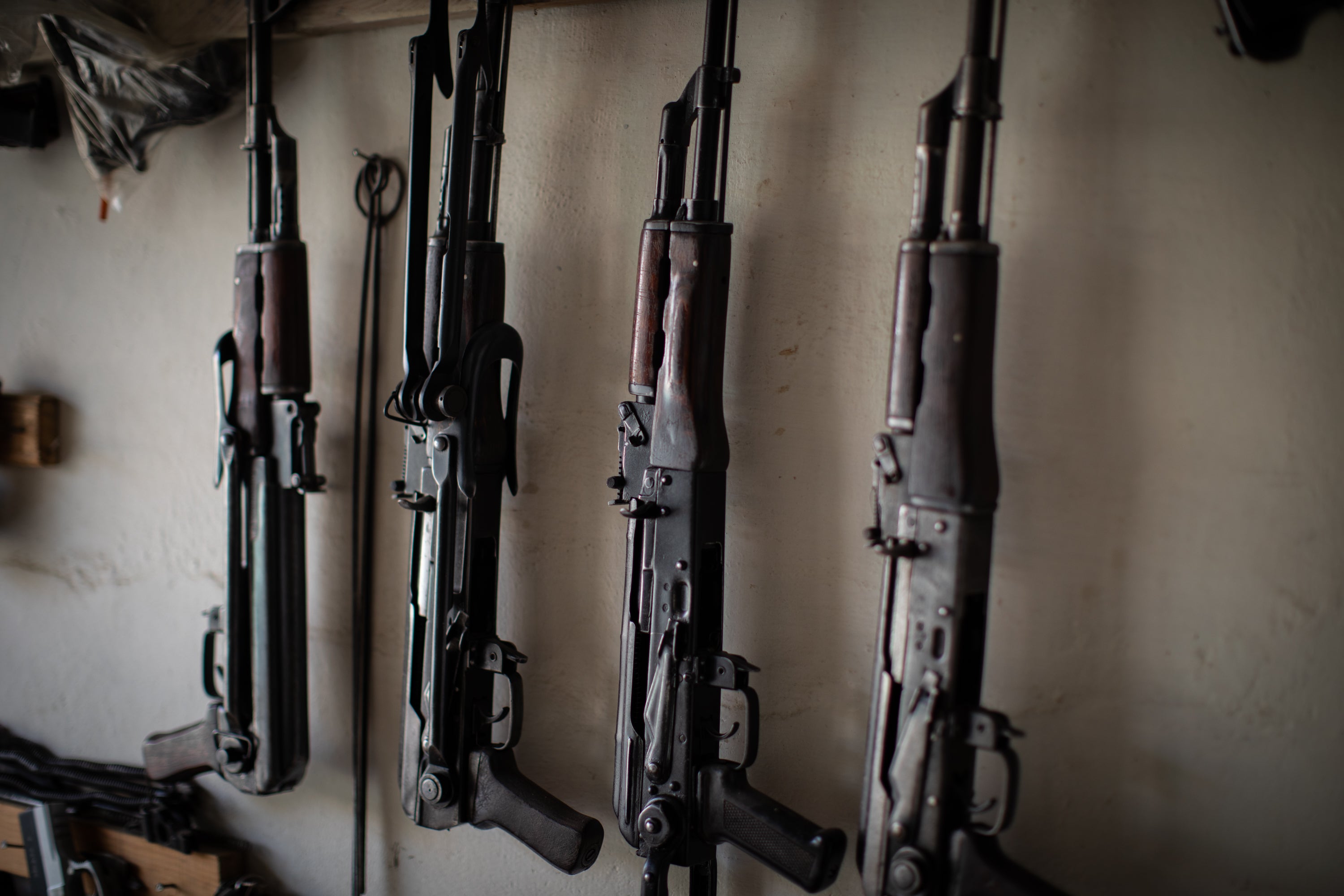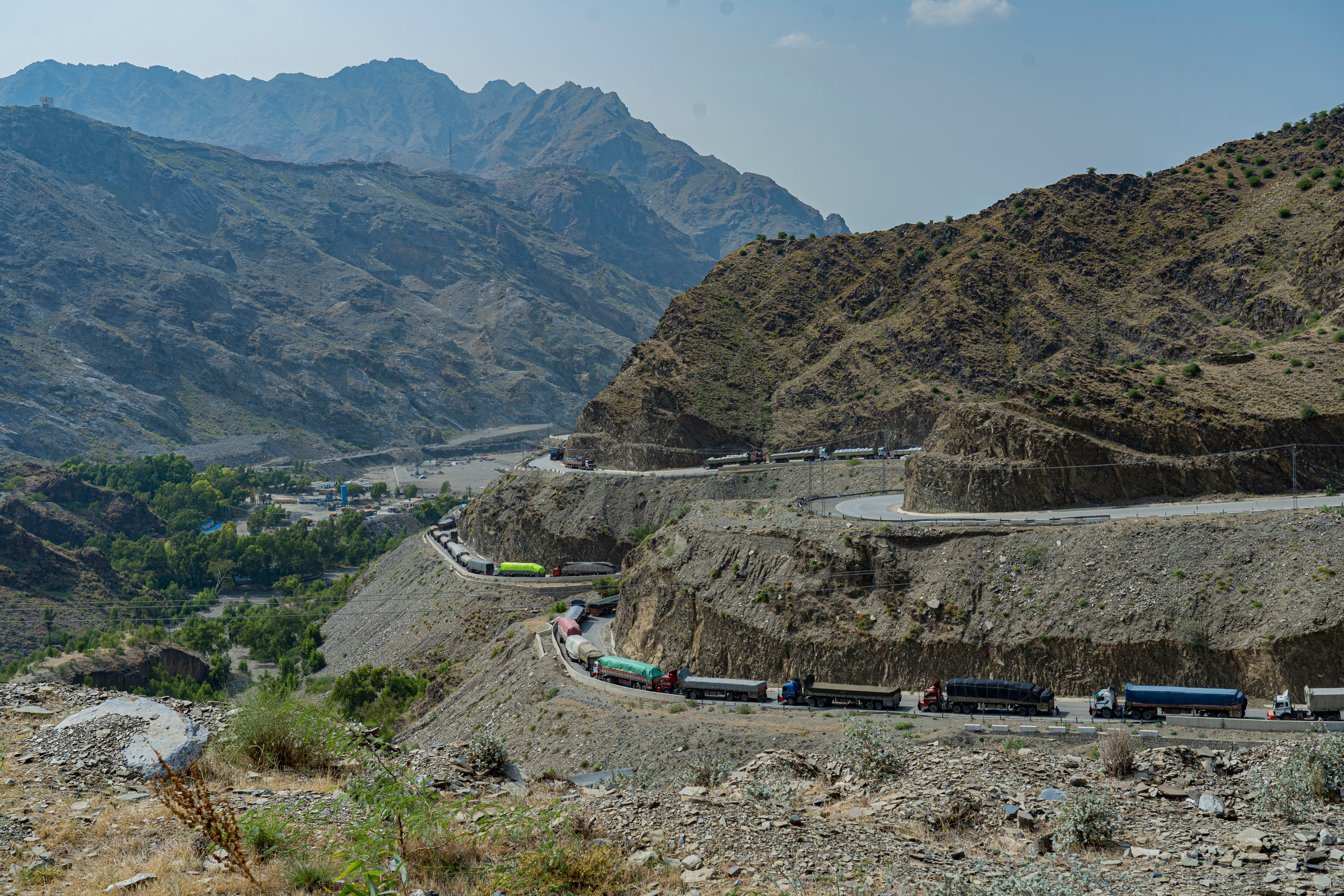With the Taliban in control of NATO bases, arm smugglers in Pakistan’s borderlands hope business is back
The Afghan-Pakistan border used to be a wonderland for weapons smugglers but that changed. After the withdrawal, a sudden influx of US-abandoned weaponry is believed to be inevitable, writes Bel Trew at the Peshawar and Torkham border


Your support helps us to tell the story
From reproductive rights to climate change to Big Tech, The Independent is on the ground when the story is developing. Whether it's investigating the financials of Elon Musk's pro-Trump PAC or producing our latest documentary, 'The A Word', which shines a light on the American women fighting for reproductive rights, we know how important it is to parse out the facts from the messaging.
At such a critical moment in US history, we need reporters on the ground. Your donation allows us to keep sending journalists to speak to both sides of the story.
The Independent is trusted by Americans across the entire political spectrum. And unlike many other quality news outlets, we choose not to lock Americans out of our reporting and analysis with paywalls. We believe quality journalism should be available to everyone, paid for by those who can afford it.
Your support makes all the difference.As soon as the footage of the Taliban picking their way through abandoned NATO bases in Afghanistan beamed around the world, the veteran Pakistani arms dealer started getting calls.
The videos of the fighters in fatigues posing with US weapons, driving armoured cars and even flying US-made helicopters had alarmed the world. But several hundred kilometres away in neighbouring Pakistan, eyes gleamed. And sellers like Ahmad, who has spent two decades smuggling weapons from Afghanistan on special orders for his clientele, saw a glint of opportunity.
“We are waiting, we are hopeful,” he tells his potential buyers enthusiastically on a video call. “We have orders for American M4s and pistols already lined up. In the days to come we hope - we expect - there to be some sort of arrangement.”
The history of smuggling between Pakistan and Afghanistan is a long one. But it became rampant in the early days of the US-led invasion of Afghanistan in 2001.
Strategically placed, Pakistan was a main lifeline for NATO troops and so ships brimming with supplies would land in Karachi from the Arabian Sea and make the several hundred-kilometre journey north to Afghanistan.
NATO containers and trucks were easy prey to bandits. The routes would go through notoriously dangerous regions like the Khyber Pass which cuts through the mountain ranges between the two countries and was once a critical nerve of the Silk Road.
It was common for the containers to arrive half full or to vanish entirely.
The borders meanwhile became a perforated wonderland for smugglers who exploited the fighting to sneak weapons, military equipment, clothing and even luxury western foodstuffs from bases in Afghanistan back into Pakistan.
Much of this contraband, from night vision goggles to ammunition belts, converged on places like Peshawar, near to the northwest border with Afghanistan, where the city’s most famous marketplace was even nicknamed locally “Bush’s Bazaar” after George W.
In those days this area, local journalists say, was so lawless it was almost a semi-autonomous “no man’s land”. At the height of the chaos, goods would be openly peddled in the streets or shuttled off to far-flung corners of the country.
But as the war dragged on, business dried up. The borders and the provinces which hug them, were brought largely under state control.
The nature of the NATO supply chain to Afghanistan also changed, and Pakistan became less of a central nerve, leaving fewer opportunities for interception inside the country.
Senior Pakistani security sources told The Independent that while no one can guarantee a completely watertight border with Afghanistan given it stretches for over 2600km through sometimes impossible terrain, “smuggling has been strangled” and would continue to be so even after the withdrawal of the US and its allies.
Police checkpoints trawl the once-notorious borderlands.
And so Bush Bazaar - now more commonly known by its actual names of Sitara and Jhangir markets - is packed with Chinese knockoffs and homemade weapons, sculpted to look like US arms by local manufacturers who squirrel away in their factories based in the more remote towns nearby like Darra Adam Khel.
This, vendors believe, will now change.

“Frankly we want the American stuff, the proper commando kit hasn’t been coming here for years,” says one store owner who begrudgingly admitted his gun holsters, tactical vests, rifle lubricants and combat boots were actually made in China.
“At the moment the border is pretty closed but maybe in a month stuff will come. We all saw the bases and the embassies being emptied. The stuff will come.”
Khalid, (not his real name) an owner of a dusty gun shop a few hundred metres away, agrees.
The shoebox store is lined with locally made American knock-offs, replicas of the M4 and M16 assault rifles the owner used to sell up until around four years ago when security tightened and supply dwindled to bullets that were easier to sneak across the borders.
“Before the Taliban, there was a trickle of American ammunition as officials [from the ousted regime] were easily bribed,” he claims. “Right now there is a total ban as the Taliban are trying to portray themselves as law and order. But we don’t think this will last”.
He says he now makes regular calls to contacts in the districts closer to the border for status updates.
“They said they don’t have anything for now but they are hopeful.”
We have orders for American M4s and Simson pistols already lined up
With Taliban fighters and their supporters opening, occupying and emptying bases, embassies and the headquarters of western organisations the local dealers believe the sudden wash of equipment will eventually and inevitably spill into Pakistan.
Some also think a burgeoning economic collapse (that the UN has warned could see famine grips parts of Afghanistan) might eventually see smuggling increase as people turn to increasingly desperate ways to make more cash. There are unconfirmed rumours that Afghan soldiers took their weapons and ammo with them when they fled again to make a quick buck as their livelihoods vanished.
There have already been attempts. In August - just a few days before the last US troop left Afghan soil - Pakistani customs officials told local media they intercepted a vehicle trying to smuggle US and NATO weapons including M4A1 Carbine Rifles, Glocks, Berettas and ammunition into Pakistan via the Torkham border near Peshawar.
Security at the border points has only tightened with the Taliban’s lightning advance across the country and at several points the crossings were completely closed. The Pakistani authorities have also told The Independent they cannot handle a sudden rush of refugees, and so have been on high alert.

Speaking to The Independent, Taliban commanders manning the Torkham border meanwhile insist weapons smuggling will not happen as “there is no lawlessness anymore.” They said bribery and corruption were the defining traits of the ousted administration, “it’s a new and better era”.
At least for now at the Torkham border, truck drivers say they are carefully checked on both sides. The only regular smuggling that is apparently going on is by small children hiding between the wheels of trucks shuttling food, clothes and cigarettes between the two sides. The Independent saw two children drop down from the undercarriage of the lorries and scuttle away.
And so Ahmad - the arms dealer - admits on the call he does not expect containers of goods to be openly traded like the old days. But with bases looted, there will be greater volume on the market.
“I don’t think it’s going to be necessarily easier to get the goods across the borders but there might be more stuff available,” he says. “That could bring costs down, right now it’s around $15,000 for an M4 which is too much.”
“As I said, we are waiting and hopeful.”
All names have been changed





Join our commenting forum
Join thought-provoking conversations, follow other Independent readers and see their replies
Comments